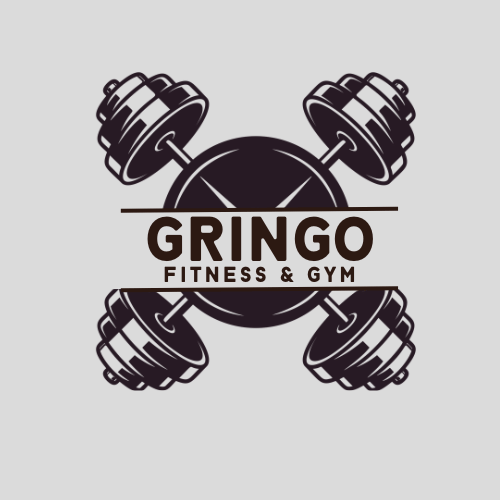Can the right supplements turn your intermittent fasting journey from tough to transformative? For many beginners, blending fasting with the right nutrients feels confusing. This guide breaks down how to pair beginners guide to supplements with your fasting plan to boost results without guesswork.
Whether you’re new to fasting or just starting with supplements, this article answers the “what,” “when,” and “why” of combining both. Discover which nutrients support your goals, how timing matters, and simple steps to avoid common pitfalls.
Key Takeaways
- A beginners guide to supplements helps align nutrient intake with fasting windows.
- Supplement basics for beginners clarify which products won’t break your fast.
- Smart supplement choices can reduce hunger and boost energy during fasting periods.
- Learn how to track progress without overcomplicating your routine.
- Discover safe, science-backed options for your health goals.
What is Intermittent Fasting?
Intermittent fasting focuses on when you eat, not what you eat. For beginners exploring how to start with supplements, knowing the basics ensures they align their routines properly. This method shifts your body to burn stored fat, making it easier to incorporate supplement introduction for beginners without disrupting benefits.
Understanding the Basics
Your body uses glucose for energy first. After 12–16 hours without food, it switches to fat. This metabolic shift is key. Those new to fasting may wonder supplement introduction for beginners steps. Start by consulting a healthcare provider to avoid supplements with calories that break fasts.
Different Types of Intermittent Fasting
- 16/8 Method: Eat within an 8-hour window daily.
- 5:2 Approach: Eat normally 5 days; restrict calories to 500–600 on two non-consecutive days.
- Alternate-Day Fasting: Fast every other day, often with modified calorie intake.
When choosing a method, timing matters for how to start with supplements. For instance, during fasting windows, water-soluble vitamins or minerals (like magnesium) may be taken without breaking the fast. Always check labels—some supplements contain sugars or calories.
Health Benefits of Intermittent Fasting
Intermittent fasting boosts more than just weight loss. It can improve overall health by enhancing how your body processes nutrients and repairs cells. For newcomers, pairing this practice with the right essential supplements for beginners can amplify these gains without complicating the process.
Weight Loss and Body Composition
Studies show fasting helps burn fat while protecting muscle mass. By limiting eating windows, your body uses stored fat for energy. This shift often leads to leaner physiques without extreme calorie cutting.
Improved Metabolic Health
Intermittent fasting boosts insulin sensitivity, lowering blood sugar levels. Over time, this reduces diabetes risk and stabilizes energy levels. For those starting out, beginner’s supplement tips like adding electrolytes can ease transitions between fasting and eating phases.
“Fasting combined with targeted supplements supports cellular repair and metabolic flexibility,” says a 2023 study in Nutrition Reviews.
Popular choices for newcomers include:
- Omega-3s: Reduce inflammation linked to fasting-induced stress.
- Electrolyte blends: Counteract dehydration and support hydration during fasts.
Always consult a healthcare provider before adding any supplement to your routine. Small steps like these make the transition smoother and more effective.
How to Start Intermittent Fasting
Embarking on intermittent fasting starts with clear planning. Begin by aligning your fasting schedule with daily routines and health goals. Transition slowly to build tolerance and avoid overwhelm.
Choosing Your Fasting Plan
- Pick a method: Start with 12-hour fasts (e.g., 12:12) before advancing to 16:8 or 5:2.
- Track energy levels and hunger patterns to adjust timing.
- Consult a healthcare provider if managing chronic conditions like diabetes.
Preparing Mentally and Physically
- Hydrate with water or herbal tea during fasting windows to curb cravings.
- Plan meals in advance to maintain nutrient balance during eating periods.
- Practice mindfulness techniques to recognize true hunger versus emotional eating.
| Supplement | Purpose | Timing |
|---|---|---|
| Adaptogenic herbs (ashwagandha) | Stress reduction | Non-fasting hours (e.g., morning) |
| Magnesium glycinate | Sleep support | Before bedtime (non-caloric) |
| MCT oil | Energy during fasts | Added to coffee during fasting windows |
A supplement guide for newcomers emphasizes non-caloric options that won’t break fasts. Always read labels—some vitamins require food for absorption. Prioritize small, consistent steps to build a sustainable routine. Adjust based on how your body responds over 2–4 weeks.
Common Myths About Intermittent Fasting
Intermittent fasting myths often leave beginners confused. Questions like “Does skipping meals harm health?” or “Do all supplements break fasts?” spread widely online. This section cuts through noise with science-backed facts. Let’s uncover truths behind these myths—starting with how to spot misinformation about fasting and supplements.
Debunking Misconceptions
Here’s the truth behind top myths:
- “Fasting burns muscle.” Reality: Muscle loss is rare with adequate protein intake and exercise.
- “Breakfast is essential.” Reality: Meal timing matters less than overall calorie balance.
- “Supplements during fasting are unsafe.” Reality: Most vitamins and minerals are fine—supplement basics for beginners clarify which to choose.
Science vs. Popular Beliefs
| Myth | Scientific Reality |
|---|---|
| Skipping breakfast slows metabolism | Metabolic rate stays stable during fasting periods |
| BCAAs break fasts | Only calorie-containing supplements end fasting state |
| Supplements replace meals | Whole foods remain vital—beginners guide to supplements advises pairing them with balanced diets |
For supplement basics for beginners, prioritize non-caloric options like electrolytes tablets or fat-soluble vitamins. Avoid powders with added sugars. Always pair supplements with whole foods—never use them as meal substitutes. Science shows fasting success depends on consistency, not shortcuts.
Nutrition While Intermittent Fasting
Your eating windows are the foundation of your fasting success. Prioritizing nutrient-rich meals keeps energy steady and cravings at bay. For those seeking beginner’s supplement advice, simple choices like protein-rich meals and fiber-packed veggies provide lasting energy.
Foods to Include
- Lean proteins: Grilled fish, tofu, and legumes
- Healthy fats: Nuts, seeds, and extra virgin olive oil
- Low-sugar veggies: Cauliflower, asparagus, and leafy greens
Foods to Avoid
- High-sugar snacks like candy bars or sugary cereals
- Refined carbs such as white bread or pastas
- Processed meats with added sugars or preservatives
Pairing whole foods with essential supplements for beginners helps address common deficiencies. Consider these options:
| Supplement | Key Benefits | Top Brands |
|---|---|---|
| Multivitamin | Supports overall nutrition | Nature Made, Centrum |
| Vitamin D3 | Boosts immunity and bone health | NOW Foods, NatureWise |
| Probiotics | Promotes gut health | Garden of Life, Culturelle |
| Omega-3 Fish Oil | Reduces inflammation | Nordic Naturals, Carlson Labs |
“Supplements should never replace meals, but they can fill gaps in a balanced diet.” – Academy of Nutrition and Dietetics
Always consult a healthcare provider before starting any new supplement. Focus on whole foods first, then use supplements to address specific needs like vitamin deficiencies or digestive support.
Intermittent Fasting and Exercise
Pairing exercise with intermittent fasting can enhance fitness goals, but timing and nutrition choices matter. Whether lifting weights or running, knowing when and how to fuel—or not—keeps energy up and progress on track.
Best Practices for Active Individuals
Start with small changes. For how to start with supplements, prioritize electrolytes or BCAAs during fasted sessions to avoid fatigue. A supplement guide for newcomers should highlight options like caffeine for focus or creatine to support strength. Always check labels for zero-calorie products.
- Try fasted cardio early morning to boost fat burning, but save heavy lifting for fed periods.
- Hydrate with water or herbal tea during fasts to stay alert.
- Post-workout, break your fast with protein (20–30g) to repair muscles without overeating.
Timing Your Workouts
Timing workouts around eating windows avoids burnout. For example:
- Do endurance exercises during fasting windows but keep intensity moderate.
- Save strength training for after breaking the fast for better performance.
- Experiment with 20-minute fasted walks to maintain metabolic flexibility.
A 2023 study in the Journal of Nutrition found that combining 16:8 fasting with resistance training boosted muscle retention in 78% of participants.
For how to start with supplements, begin with electrolytes tablets or caffeine-free options. A supplement guide for newcomers should also note that BCAAs (branched-chain amino acids) don’t break fasts but may help during long workouts. Always consult a healthcare provider before adding new products.
Intermittent Fasting for Specific Groups
Intermittent fasting can affect women and seniors differently, requiring tailored approaches. Understanding these differences helps ensure safety and effectiveness. Let’s explore how to adapt fasting routines and incorporate supplements for unique needs.
A personalized approach is key. Supplements can bridge nutritional gaps when fasting, but always consult a healthcare provider first.” – National Institute of Nutrition
Women and Intermittent Fasting
Women may experience hormonal shifts during fasting. Beginner’s supplement tips for women focus on iron (to combat potential deficiencies) and omega-3s for hormone balance. A supplement introduction for beginners should include calcium for bone health, especially during menstrual cycles or menopause.
- Iron: Prevents fatigue during fasting periods
- Omega-3: Supports mood and menstrual cycle regularity
- Calcium + vitamin D: Strengthens bones during reduced calorie intake
Seniors and Intermittent Fasting
Safety comes first for seniors. Beginner’s supplement tips prioritize protein powder (to maintain muscle mass) and vitamin B12 (commonly deficient in older adults). A supplement introduction for beginners should also highlight vitamin D for bone density and magnesium to aid sleep quality.
- Protein powder: 20-30g daily during eating windows
- Vitamin B12: 2.4mcg daily (check for absorption issues)
- Magnesium: 300-400mg to ease fasting-related stress
Always pair supplements with medical advice. Adjust fasting windows and nutrients based on individual health. Small steps and professional guidance ensure safe, sustainable results.
Tips for Success in Intermittent Fasting
Mastering intermittent fasting requires more than just willpower. Small adjustments turn challenges into habits. Start with these actionable steps to stay on track.
Staying Comfortable During Fasts
Combat hunger and energy dips with these simple strategies:
- Sip sparkling water or black coffee to curb cravings. Caffeine boosts alertness without calories.
- Try electrolyte drops in water to prevent headaches. Magnesium and potassium keep muscles and nerves balanced.
- For those getting started with supplements, consider MCT oil or exogenous ketones to fuel workouts without breaking a fast. Check labels for zero carbs and sugar alcohols.
Handling Social Situations
Staying consistent around food-centric events is key. Practice responses like:
“I’m trying a lighter approach today but will enjoy your appetizers later!”
When dining out, order a small appetizer or split portions. Always carry a water bottle to signal you’re already “eating” your hydration. For beginner’s supplement advice, consult a nutritionist before adding vitamins or minerals to avoid interactions with medications.
Small adjustments make fasting sustainable. Prioritize consistency over perfection—slip-ups are part of the journey.
Tracking Your Progress
Monitoring your journey beyond the scale helps uncover how intermittent fasting impacts your body. A supplement introduction for beginners or a beginners guide to supplements can help you log how vitamins or minerals interact with your fasting routine. Small changes in energy or sleep might signal what’s working—or what needs adjusting.
Journaling Your Journey
Write down fasting times, meals, and any supplements taken. Track energy dips or boosts after specific vitamins. For example, note if omega-3 capsules improve focus during fasting windows. A beginners guide to supplements suggests pairing journal entries with biomarker tests—like vitamin D levels—to see real effects.
- Energy levels before/after meals
- Mood shifts during fasting periods
- Sleep patterns and recovery time
- Supplement dosages and timing
Using Apps and Tools
Apps like Zero and MyFitnessPal track fasting windows and let you log supplements. Look for tools with customizable fields to note how multivitamins or probiotics affect hunger cues. Apps like Lab Test Analyzer can sync with bloodwork results, showing if your supplement introduction for beginners plan is on track.
Regular check-ins with a doctor or nutritionist can clarify if your choices align with your goals. Small adjustments in timing or dosage, guided by a beginners guide to supplements, turn data into actionable steps. Progress isn’t just about weight—it’s about feeling your best.
Long-Term Sustainability of Intermittent Fasting
Turning intermittent fasting into a lasting habit starts with seeing it as part of your daily rhythm, not a short-term fix. Success comes from balancing consistency with adaptability as your body and life change. Let’s explore how to keep this practice fresh and effective over time.
Making It a Lifestyle Change
Flexibility is key. Adjust fasting windows if stress or goals shift—maybe start with 12-hour fasts and expand gradually. Listen to hunger cues and avoid rigid rules. For newcomers, a supplement basics guide can help choose essentials like multivitamins or magnesium if nutrient gaps arise. Prioritize quality supplements from trusted brands like NOW Foods or Garden of Life to support your routine without overcomplicating it.
How to Adapt Your Plan Over Time
Regular check-ins keep your approach aligned with your health. If energy dips, shorten fasting periods or add a small protein-rich snack during windows. A supplement guide for newcomers highlights when to cycle probiotics or adaptogens during stressful times. Use apps like Zero or MyFasting to track shifts in your schedule. Celebrate small wins, like sticking to a plan for a month, and revisit goals every three months. Remember, the best strategy evolves as you do—so stay open to tweaks that honor your unique needs.










